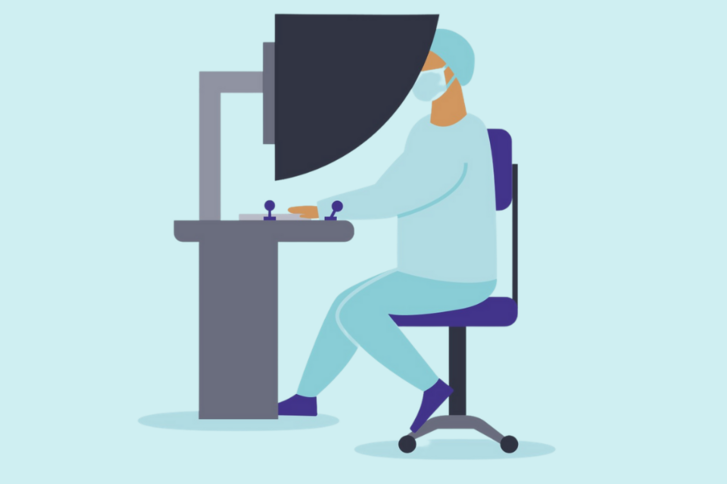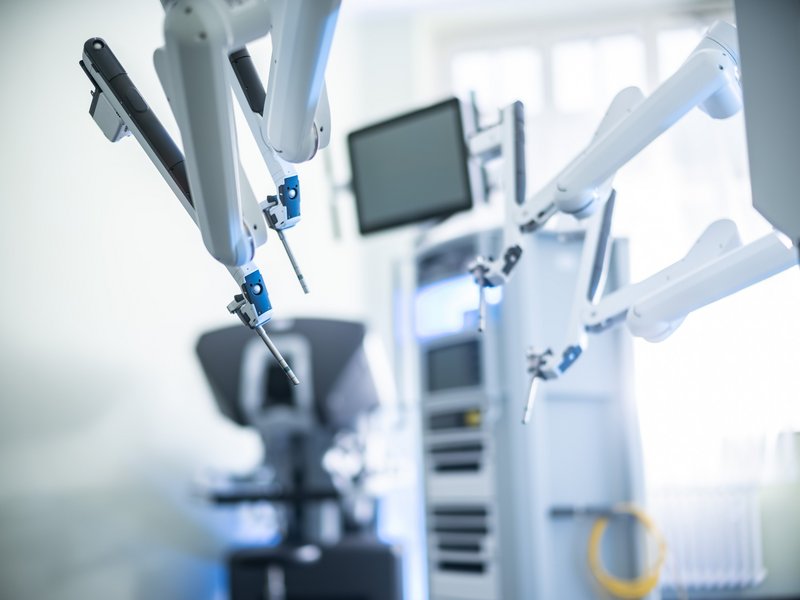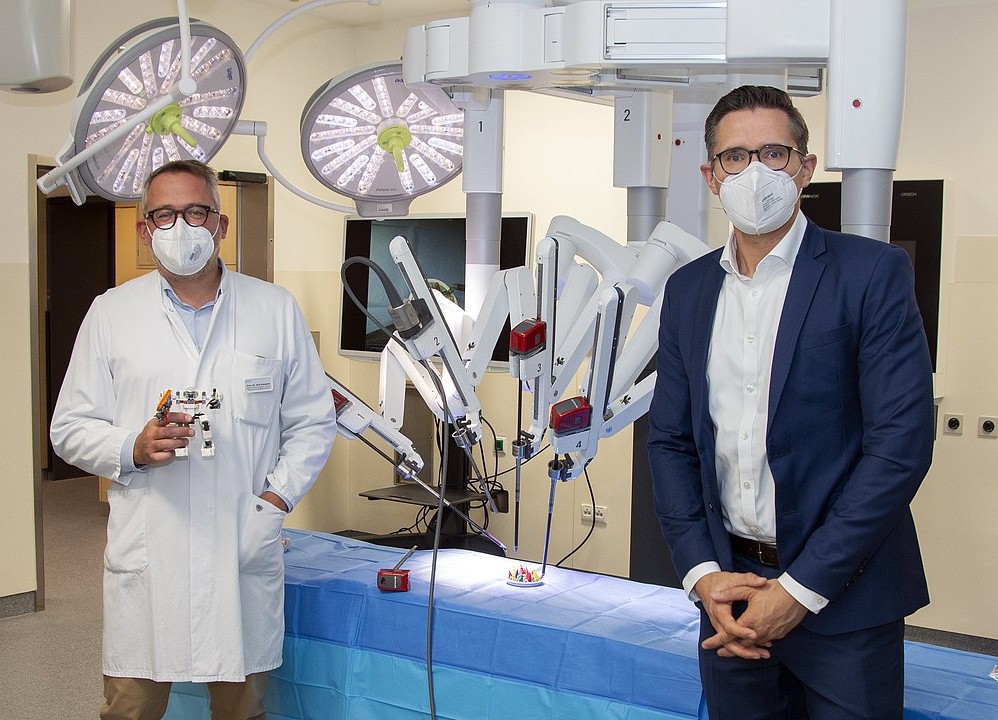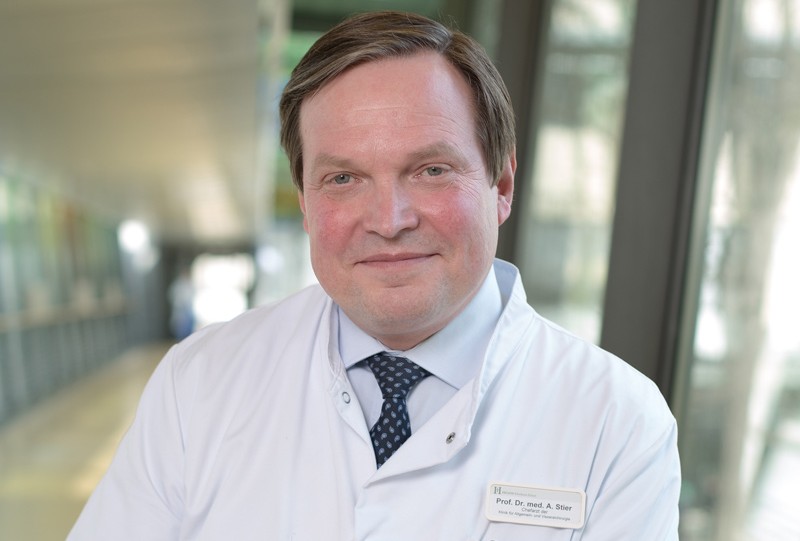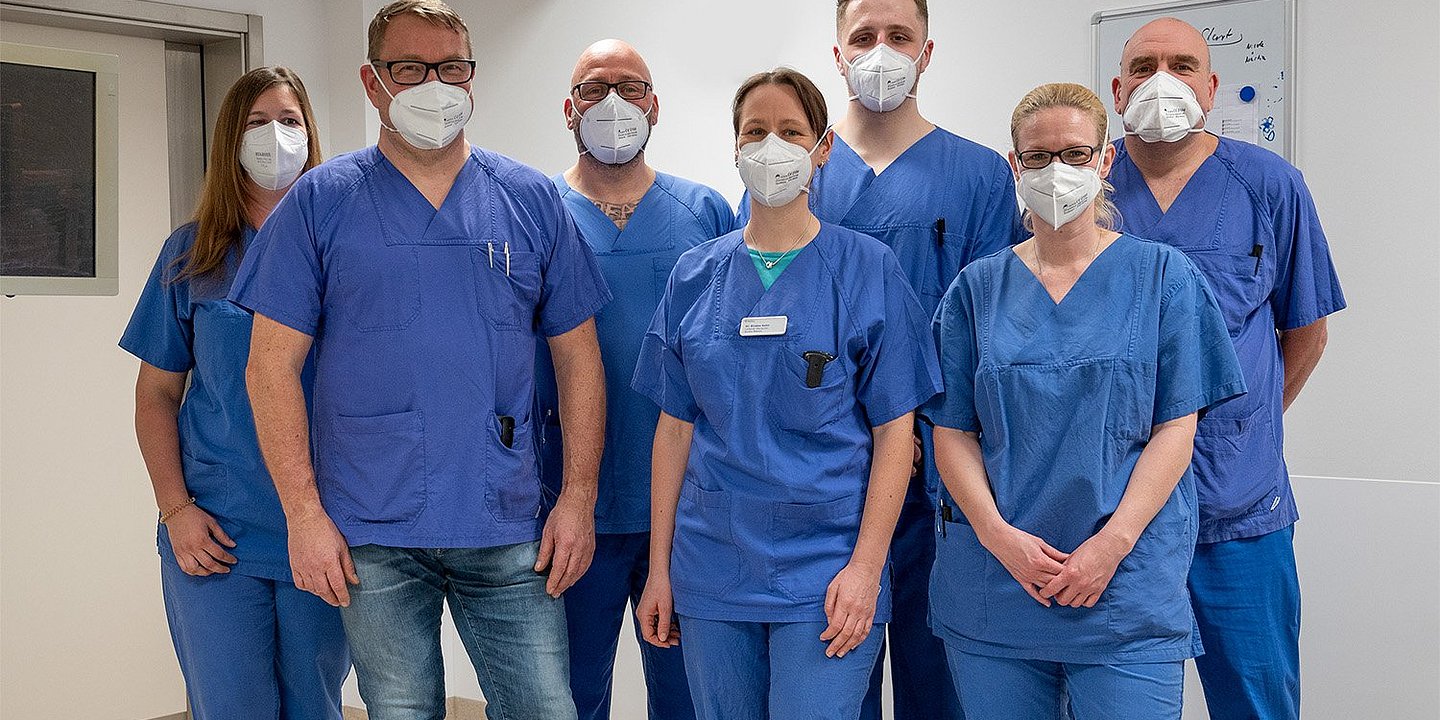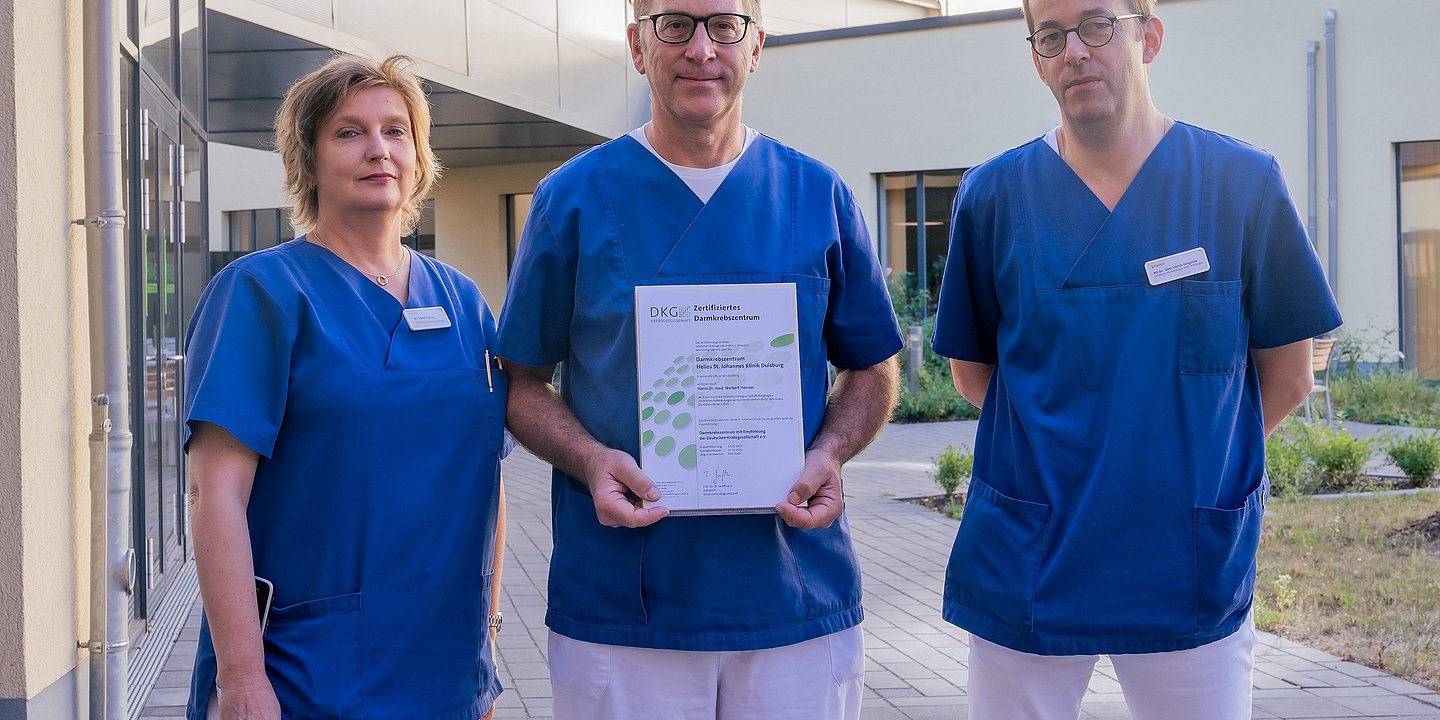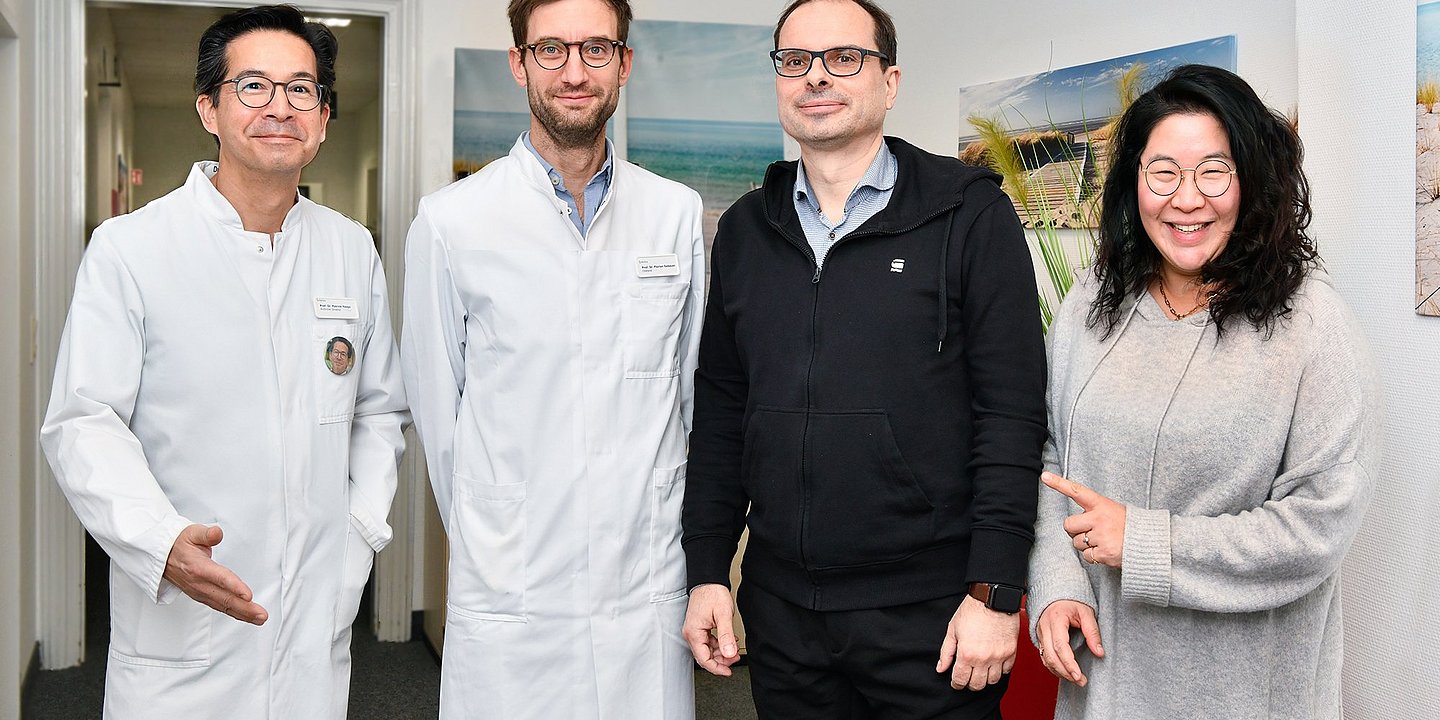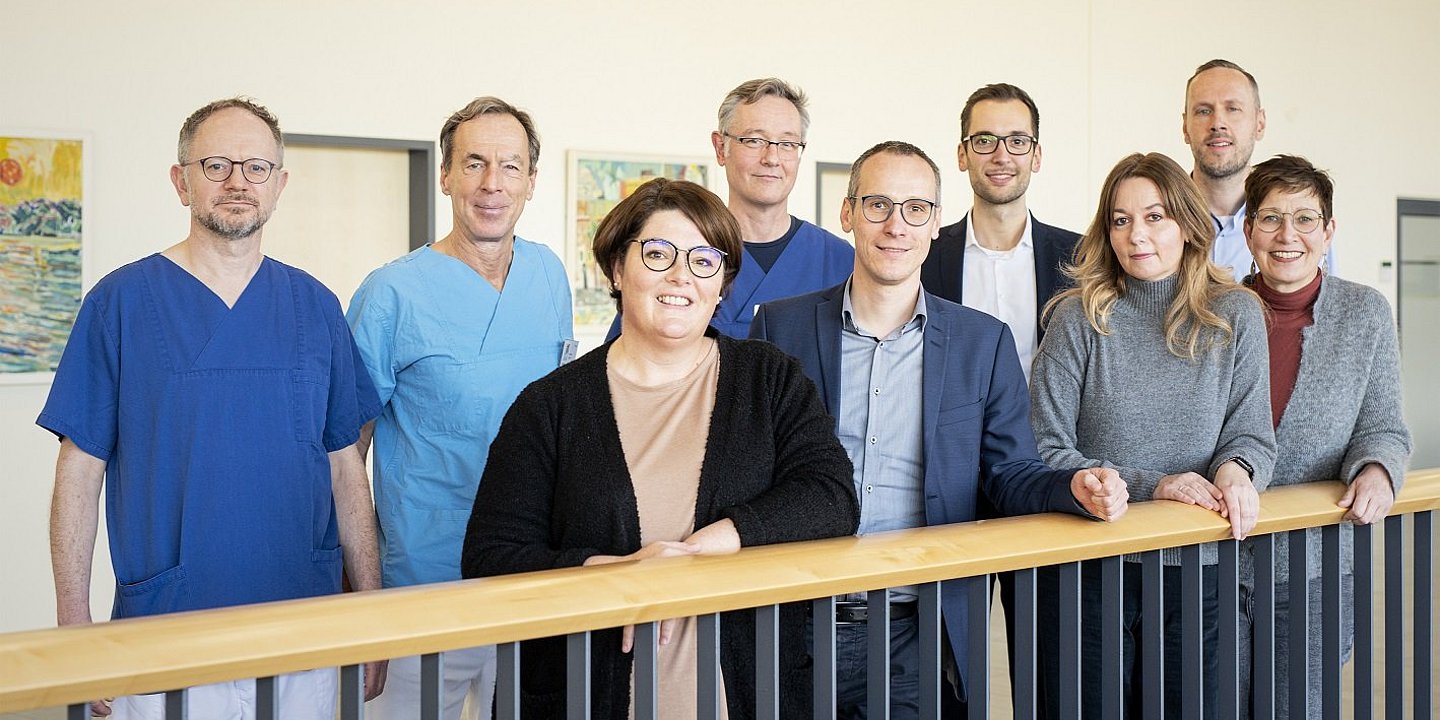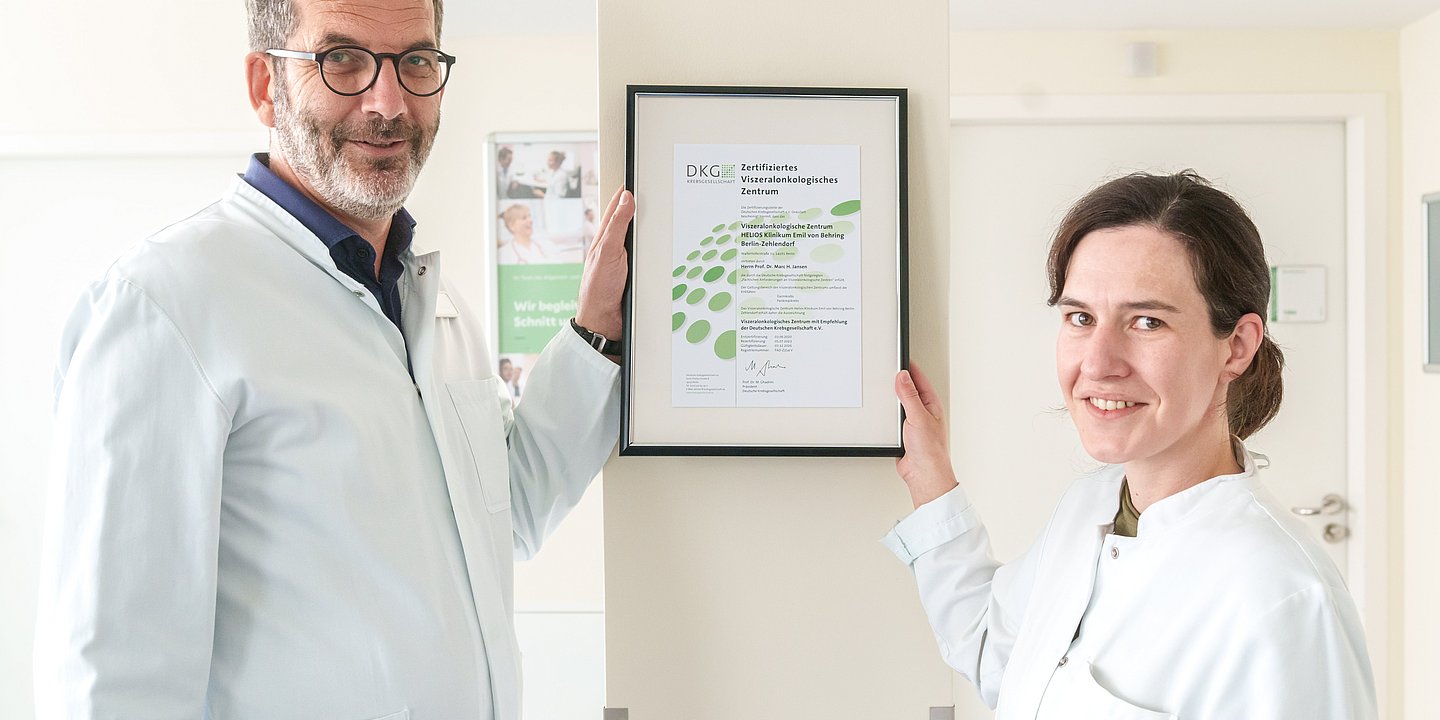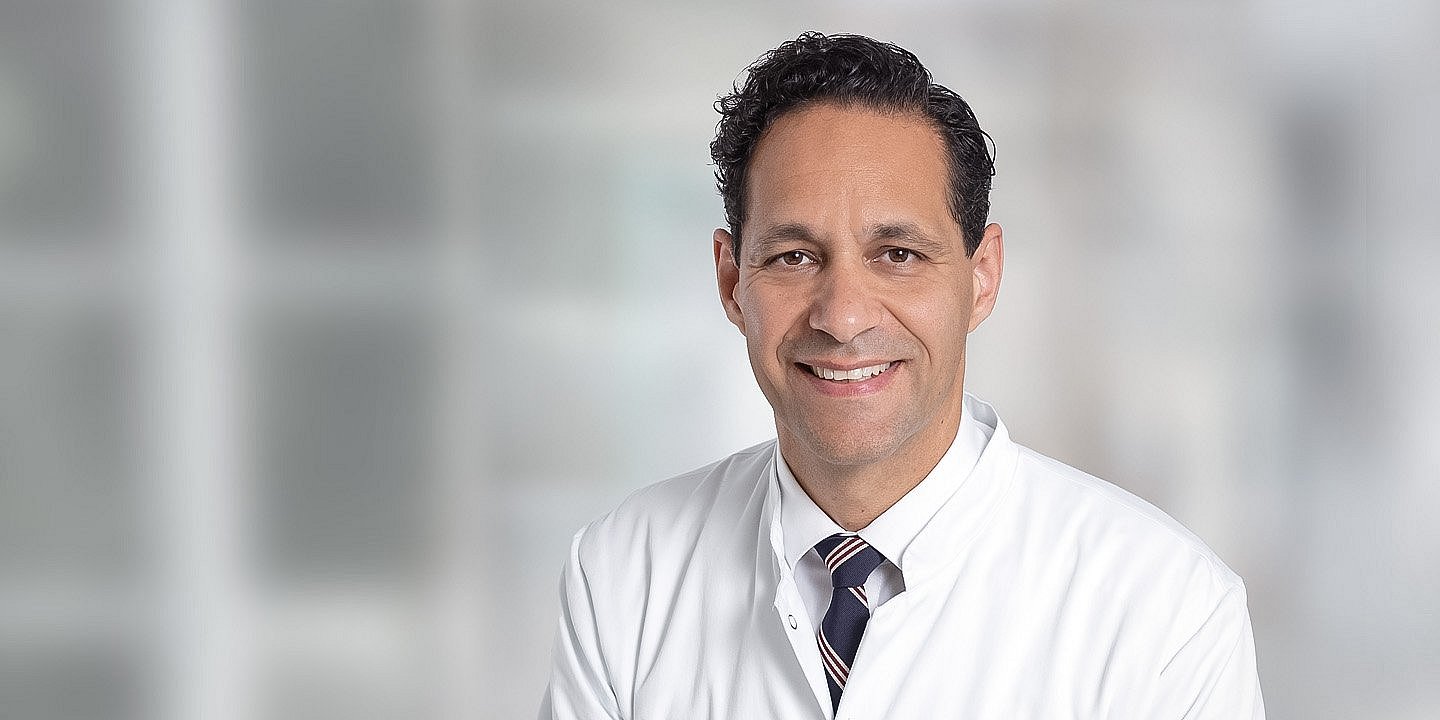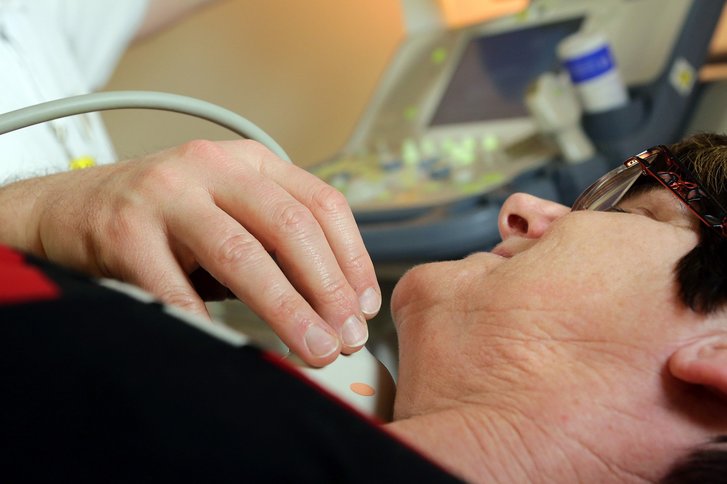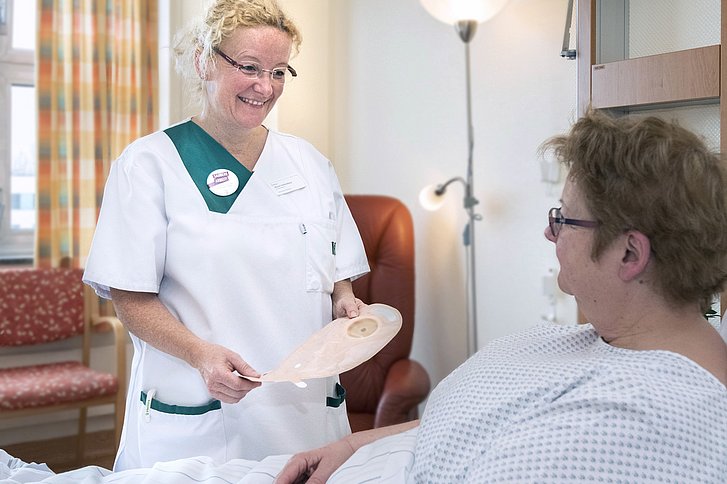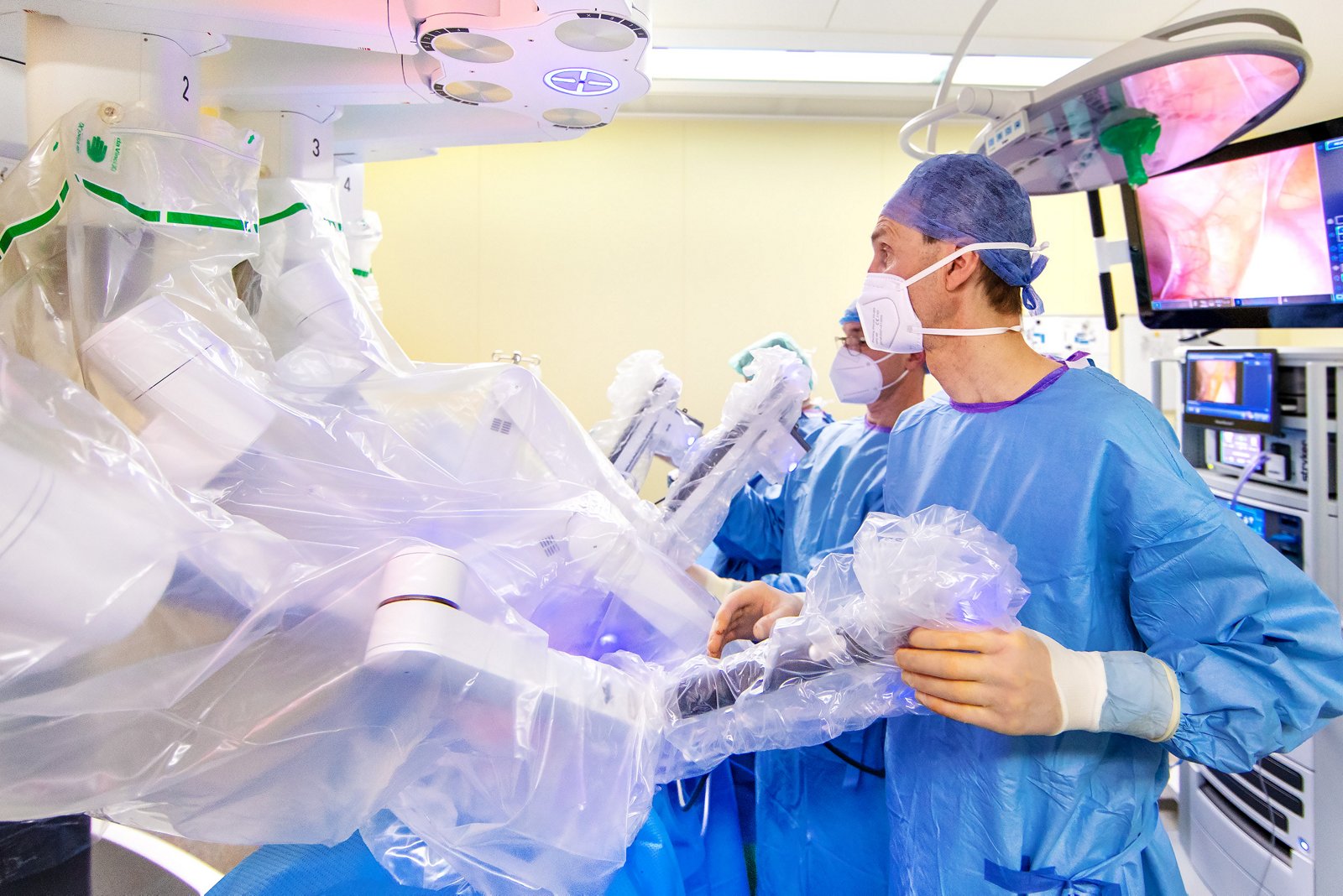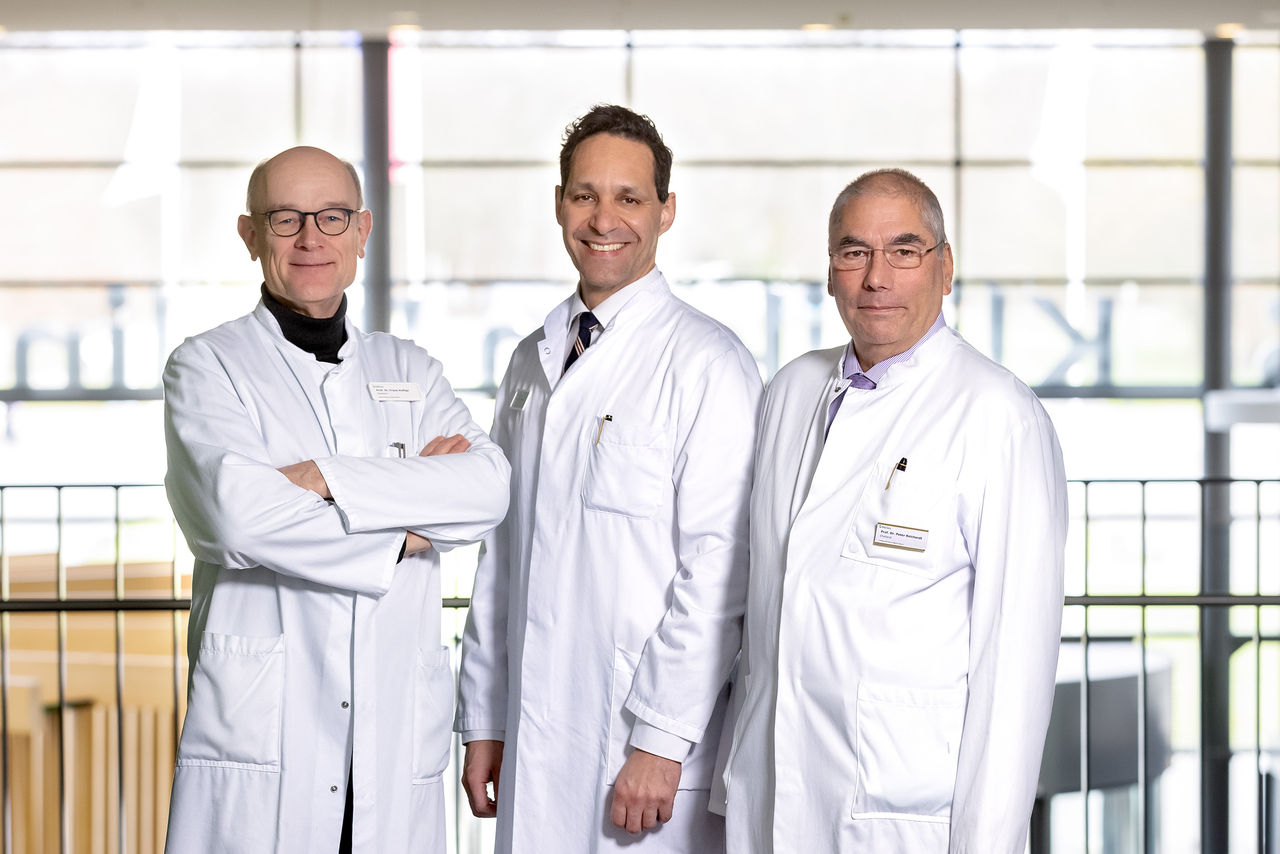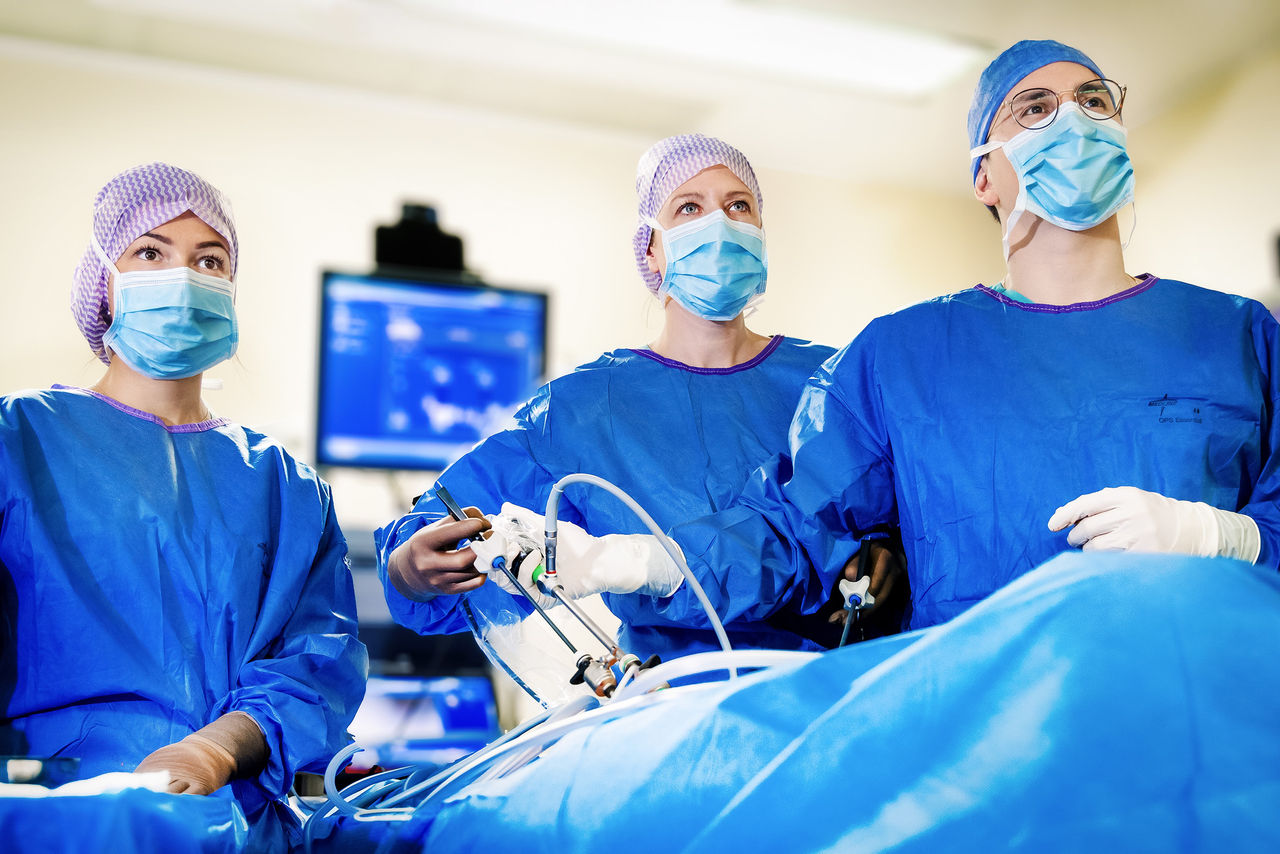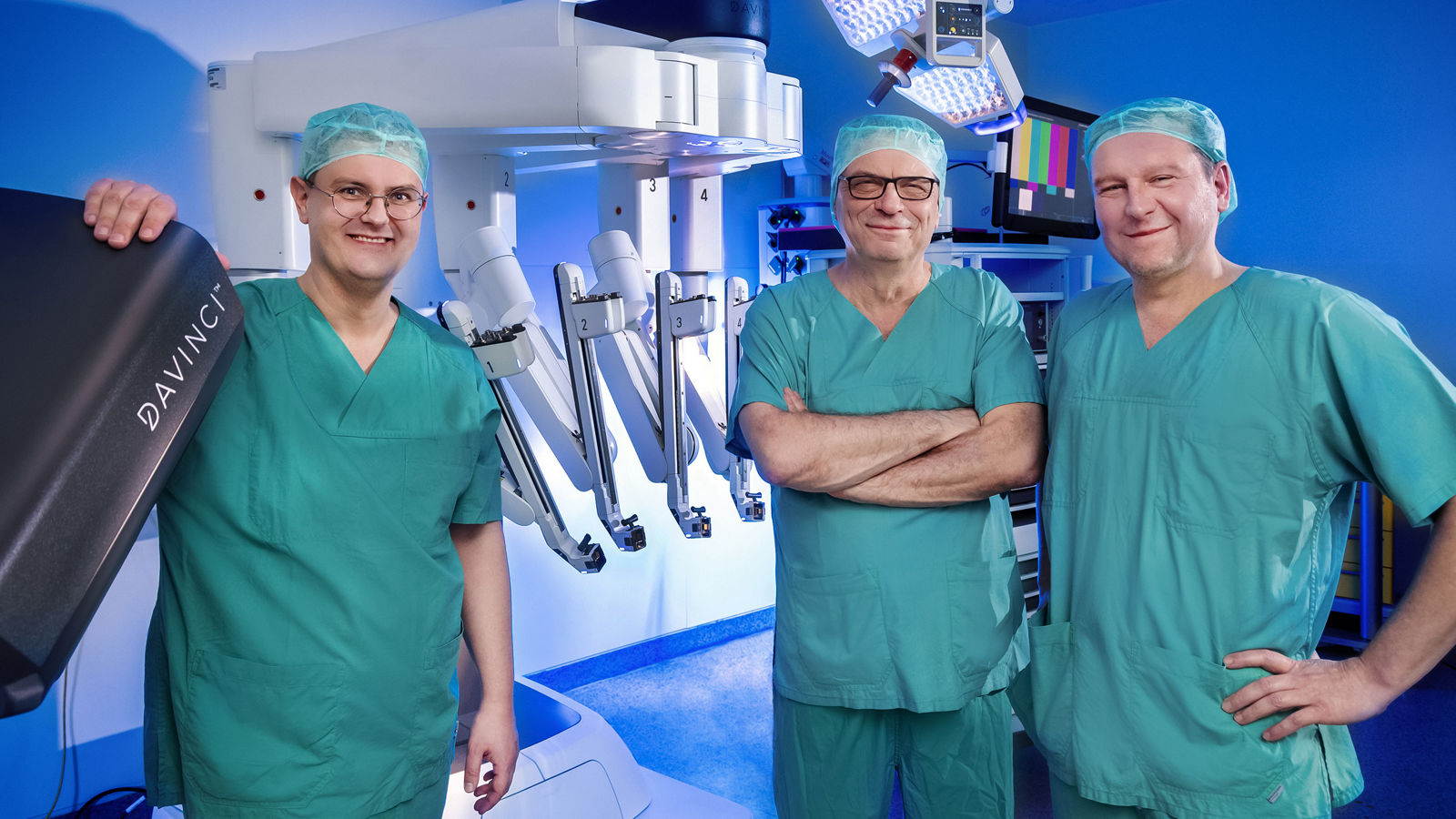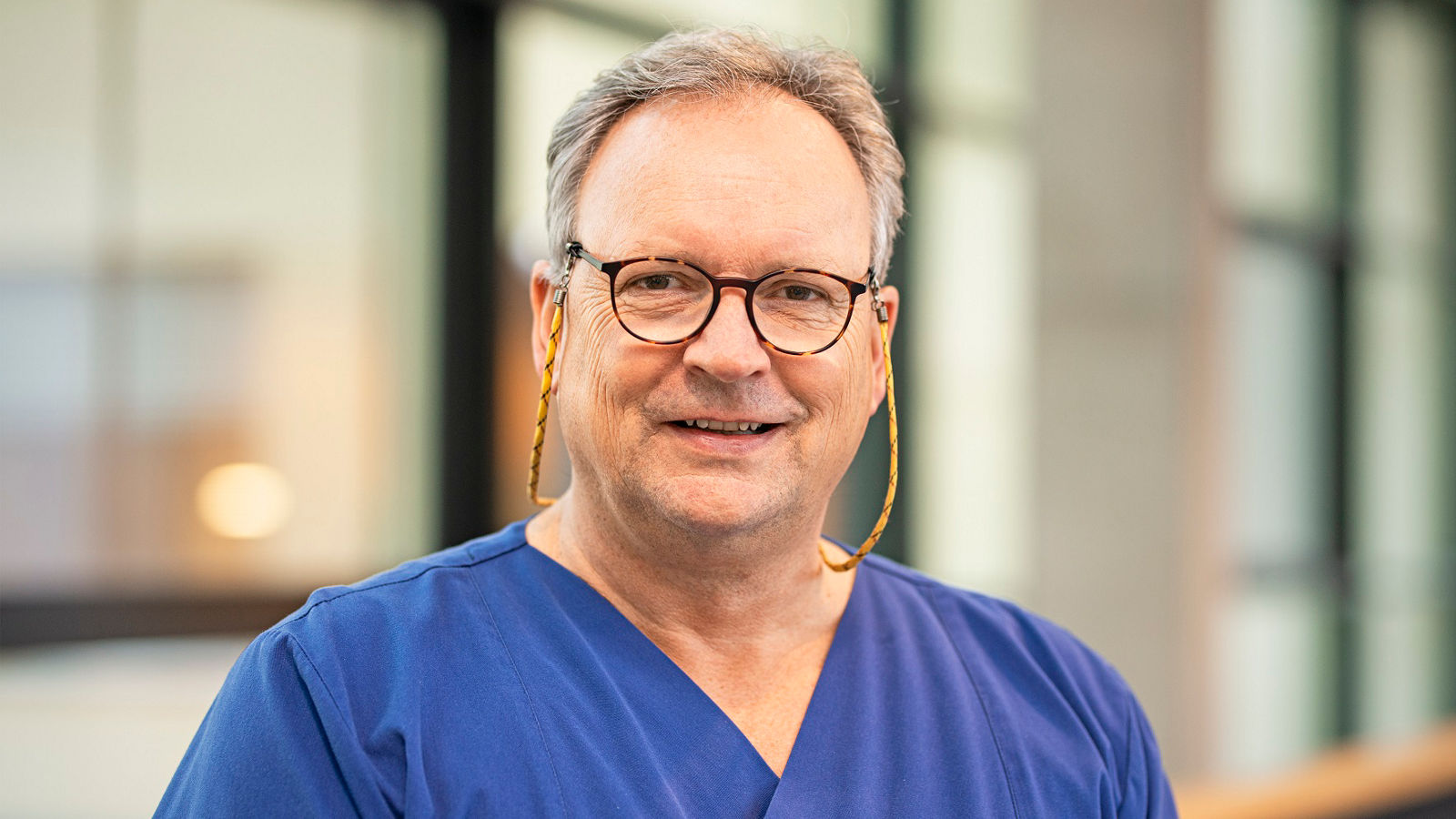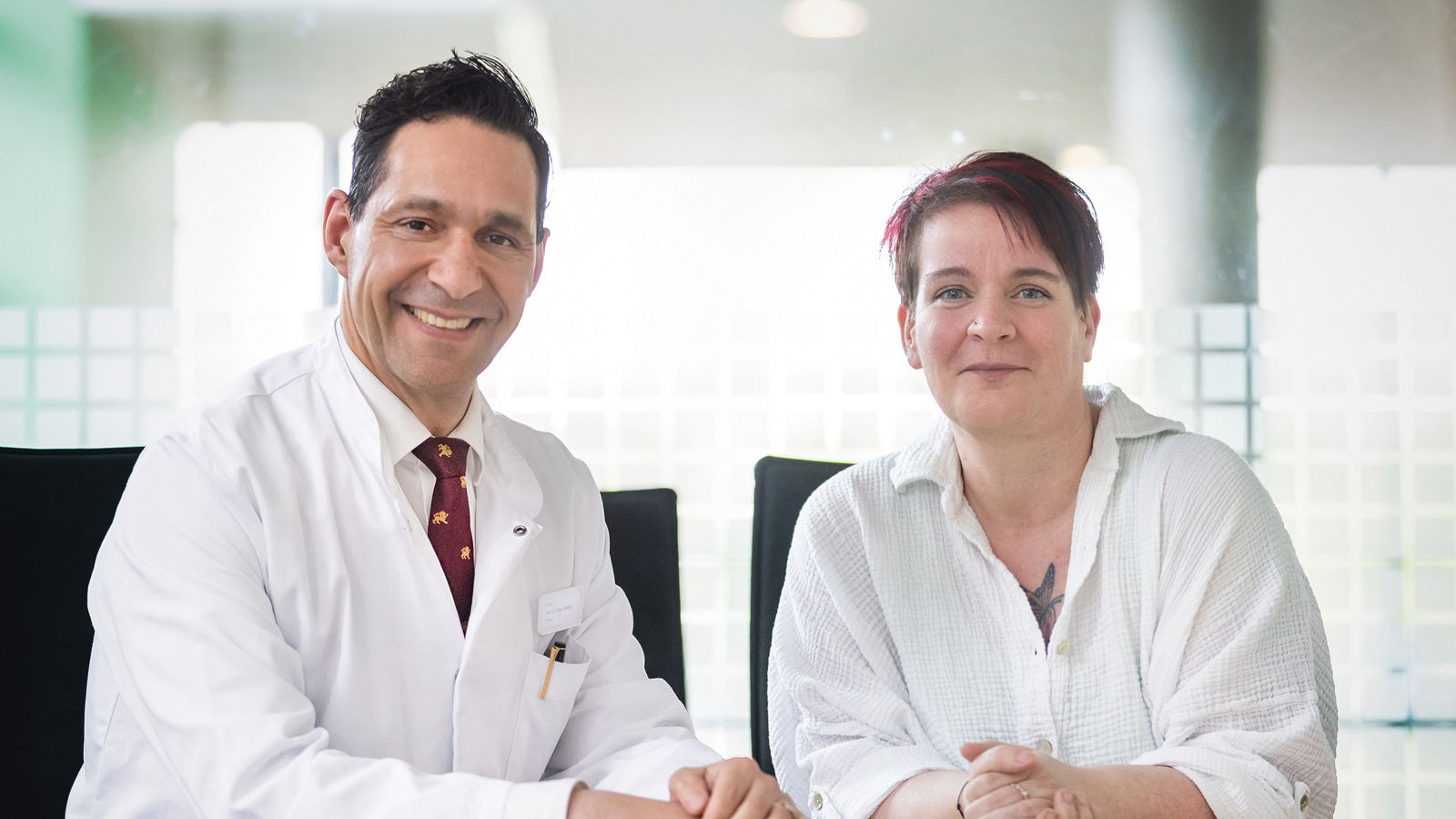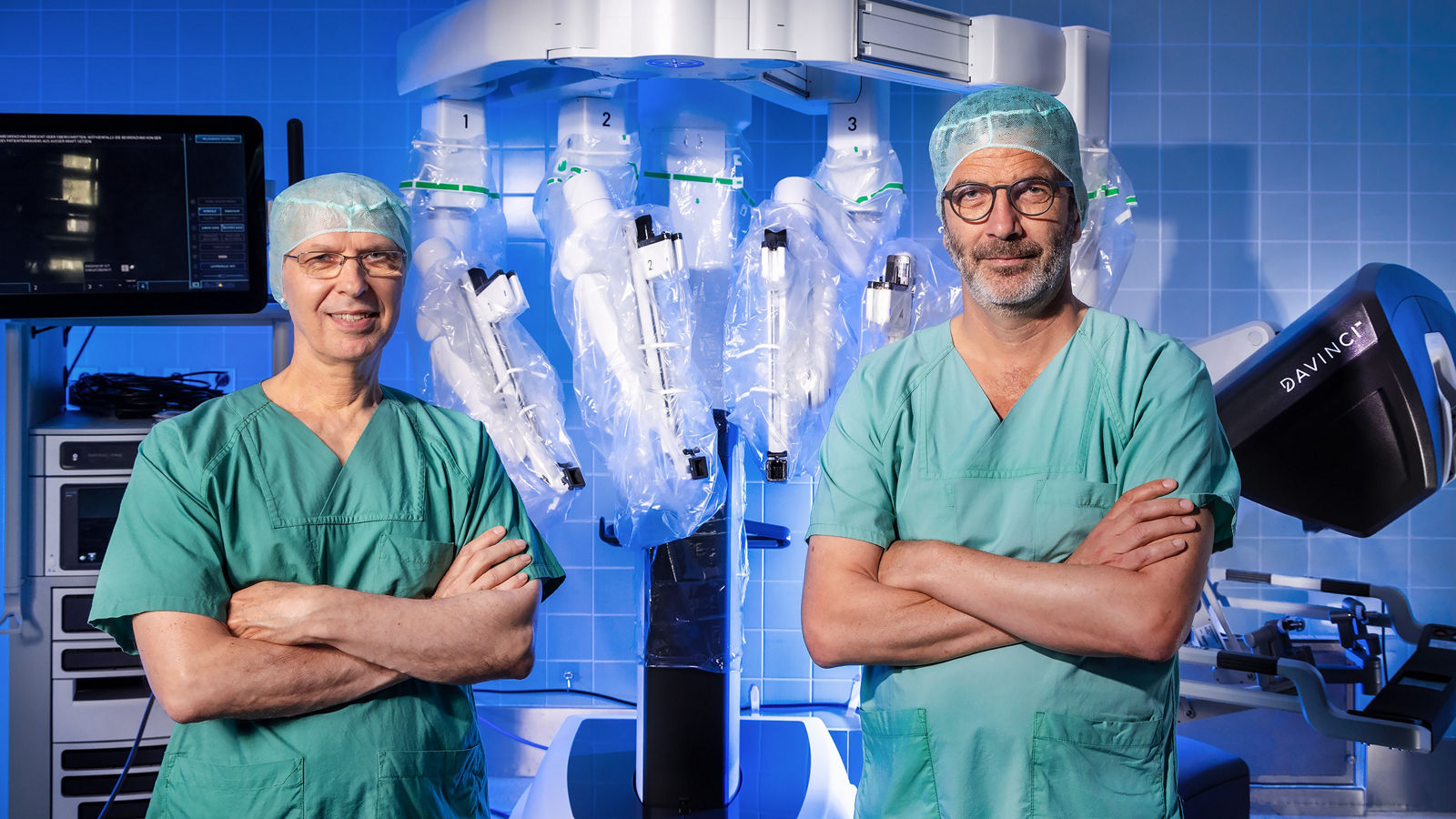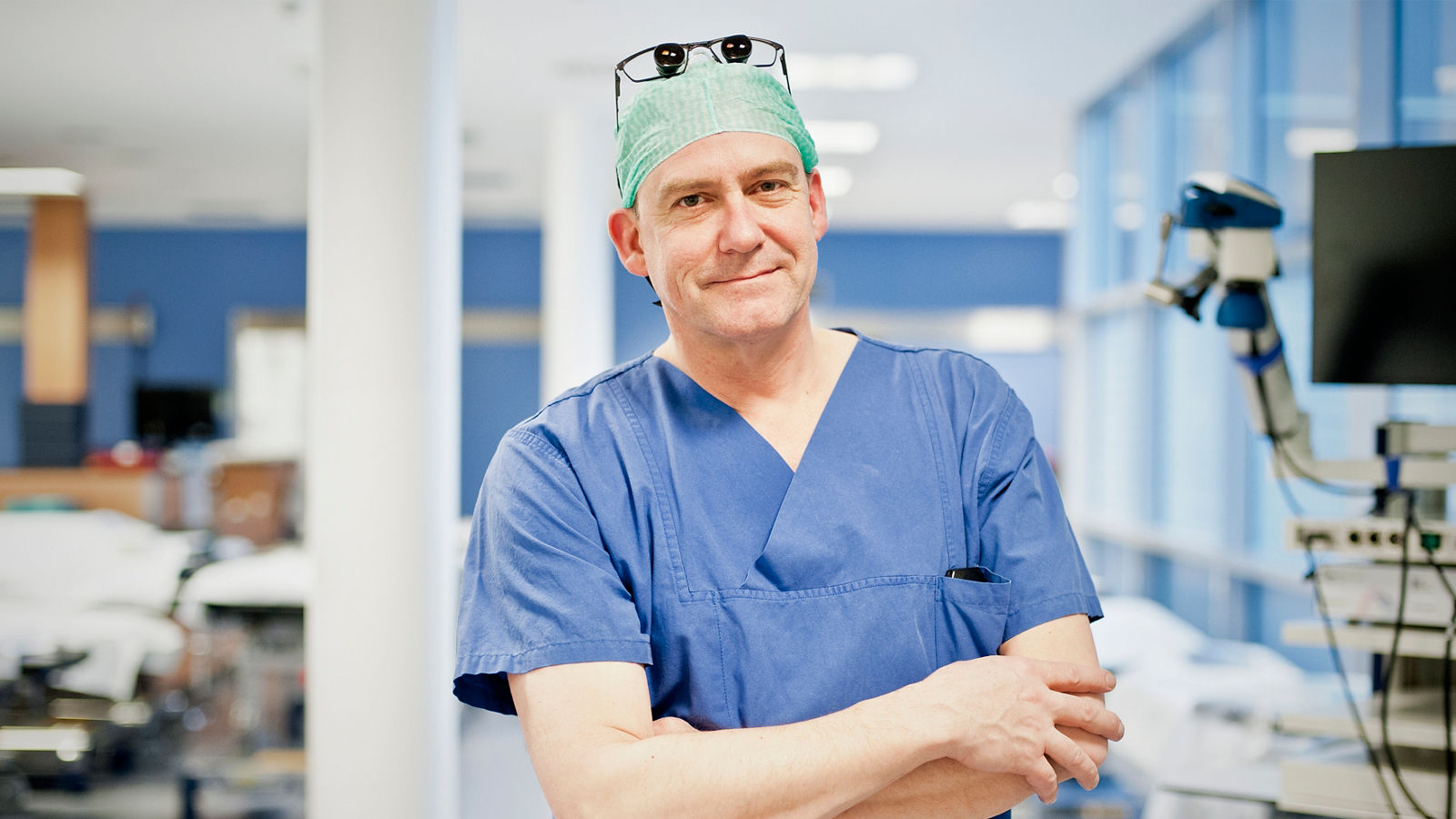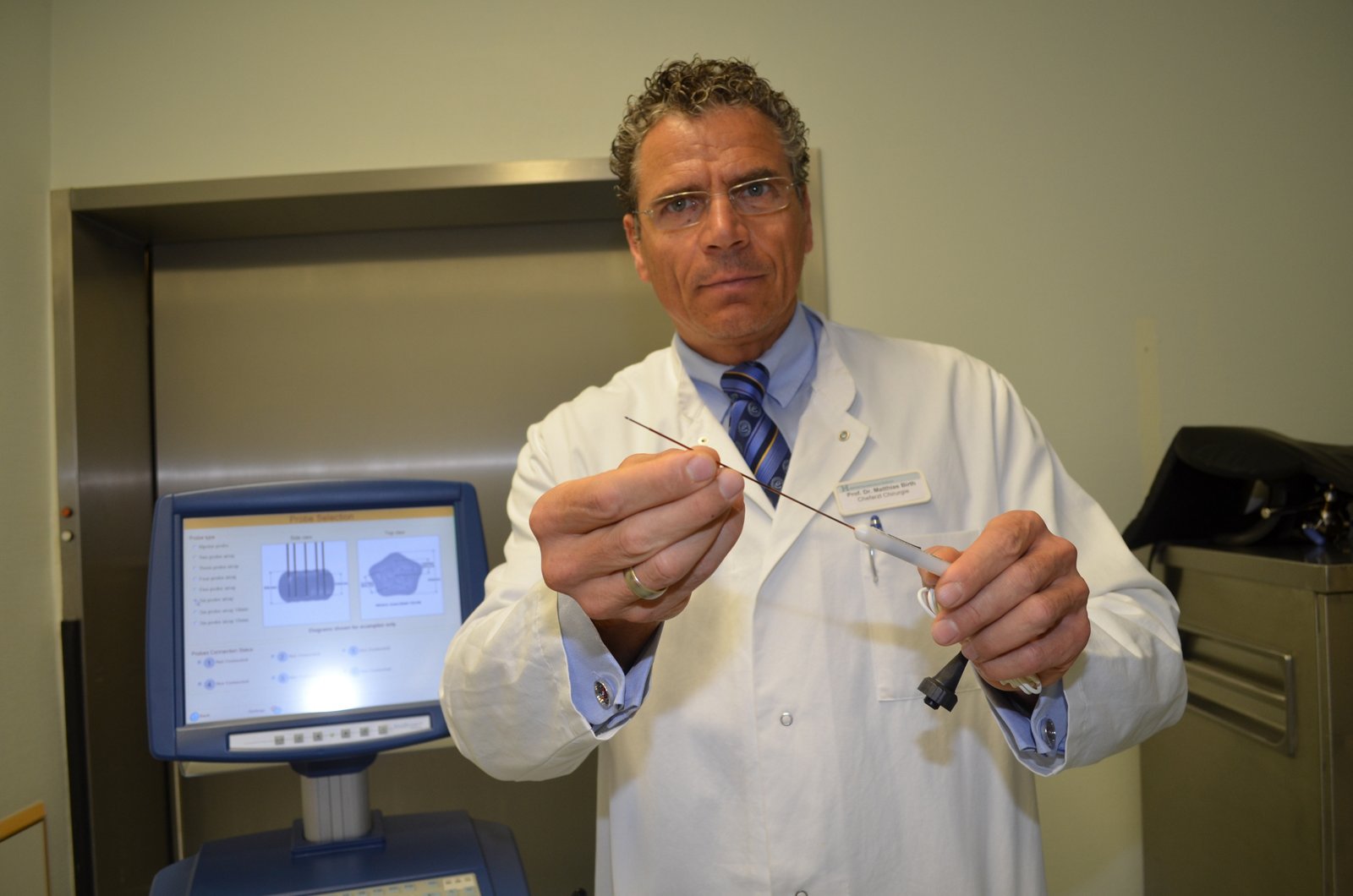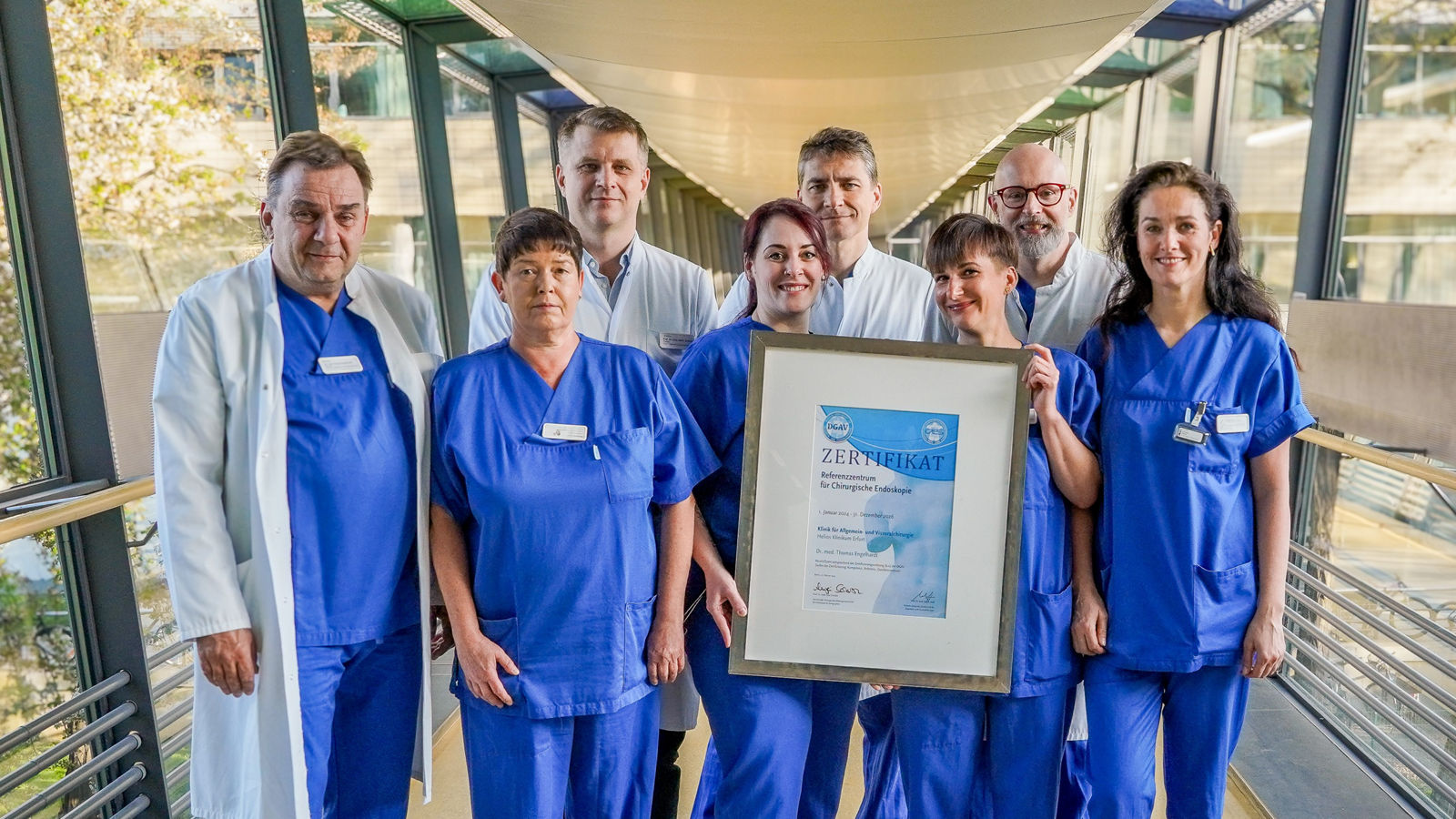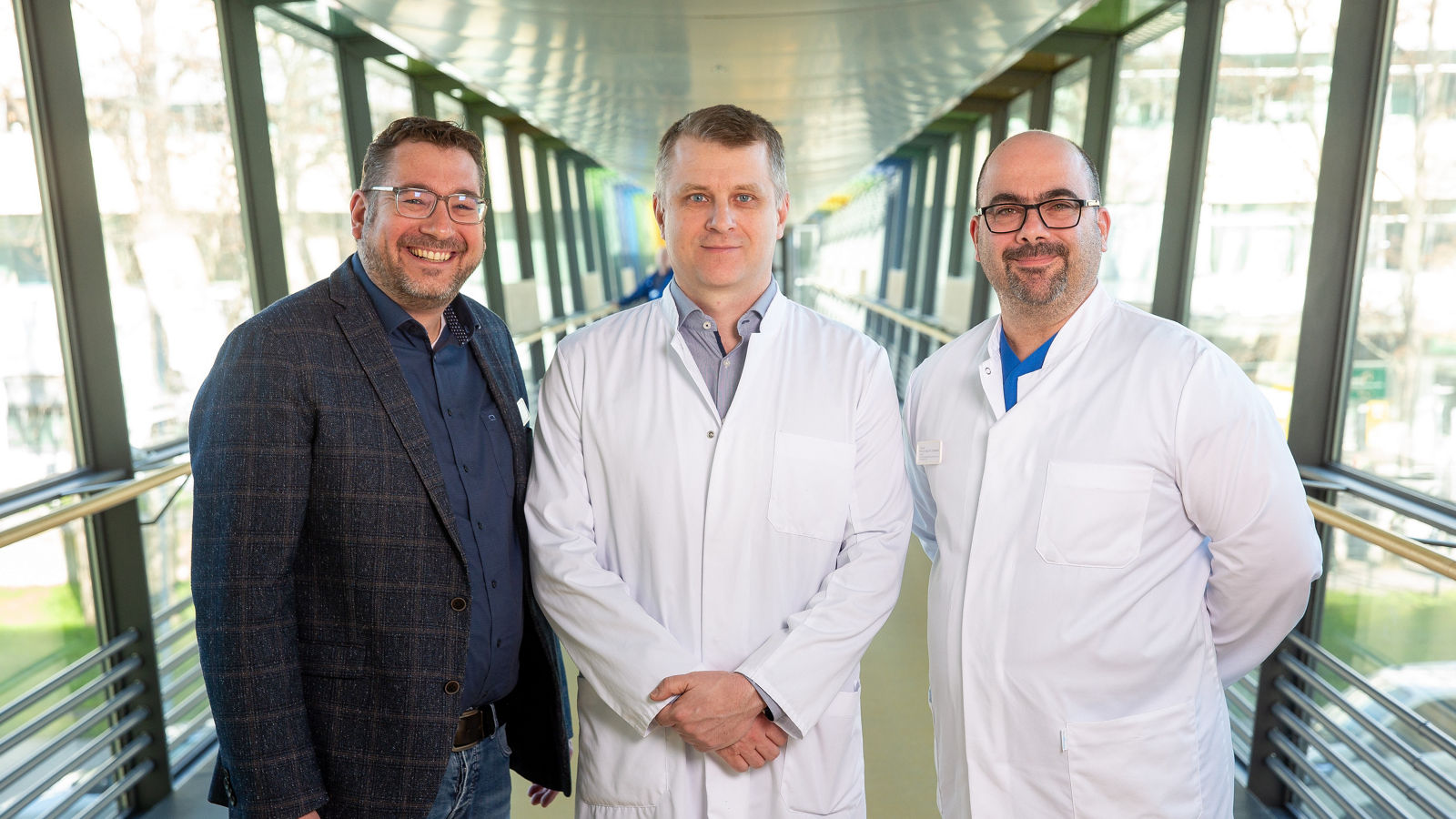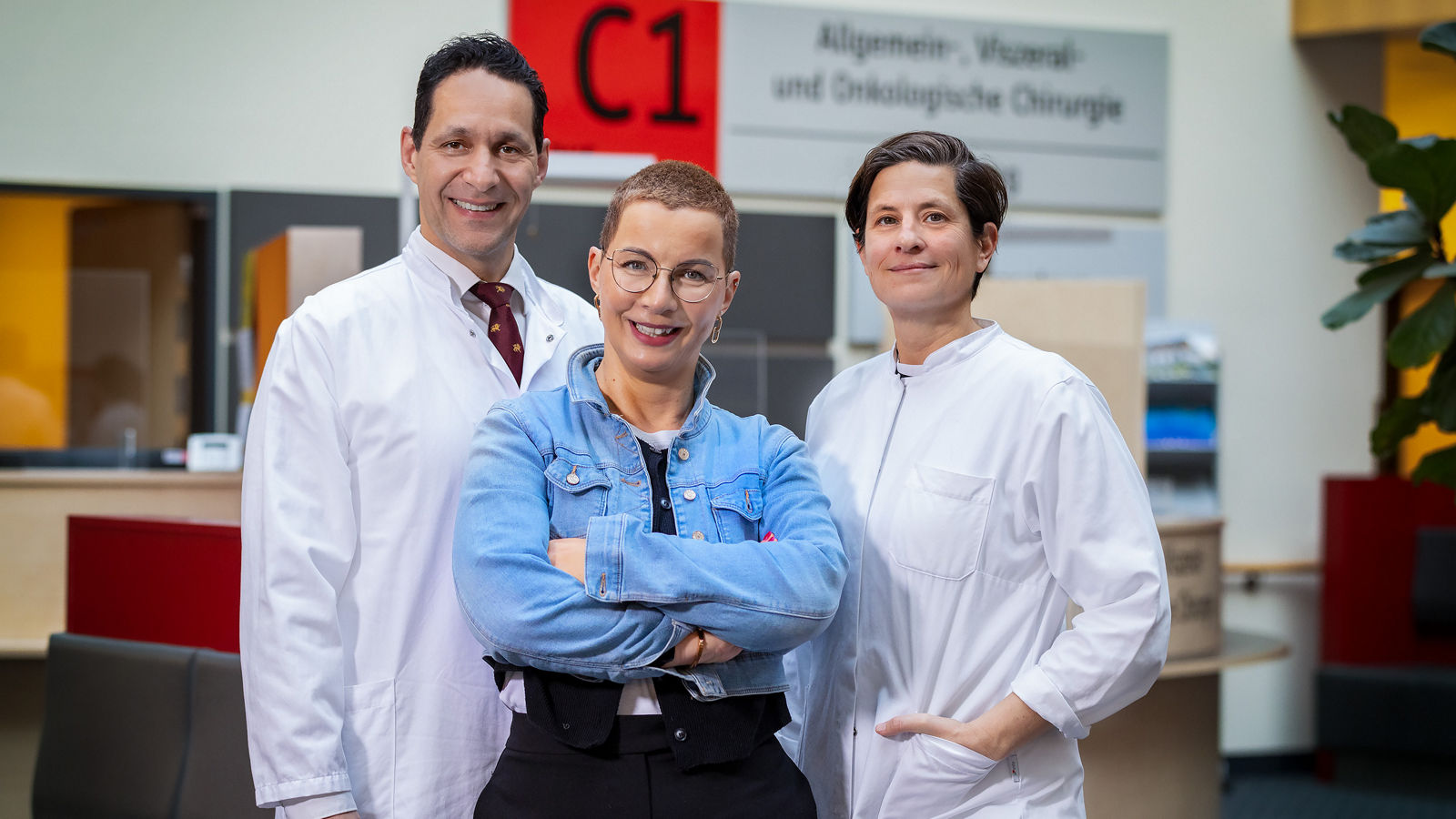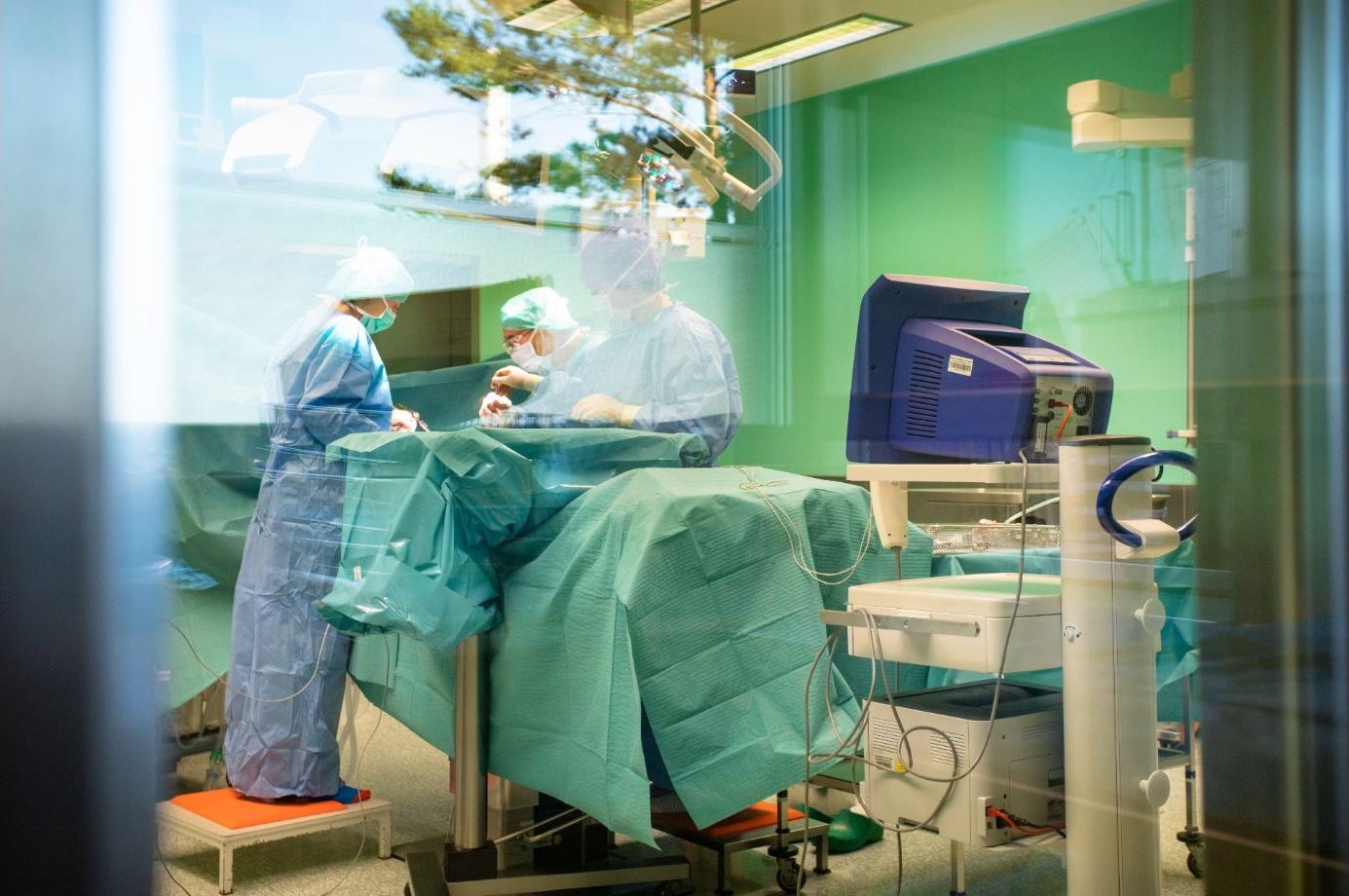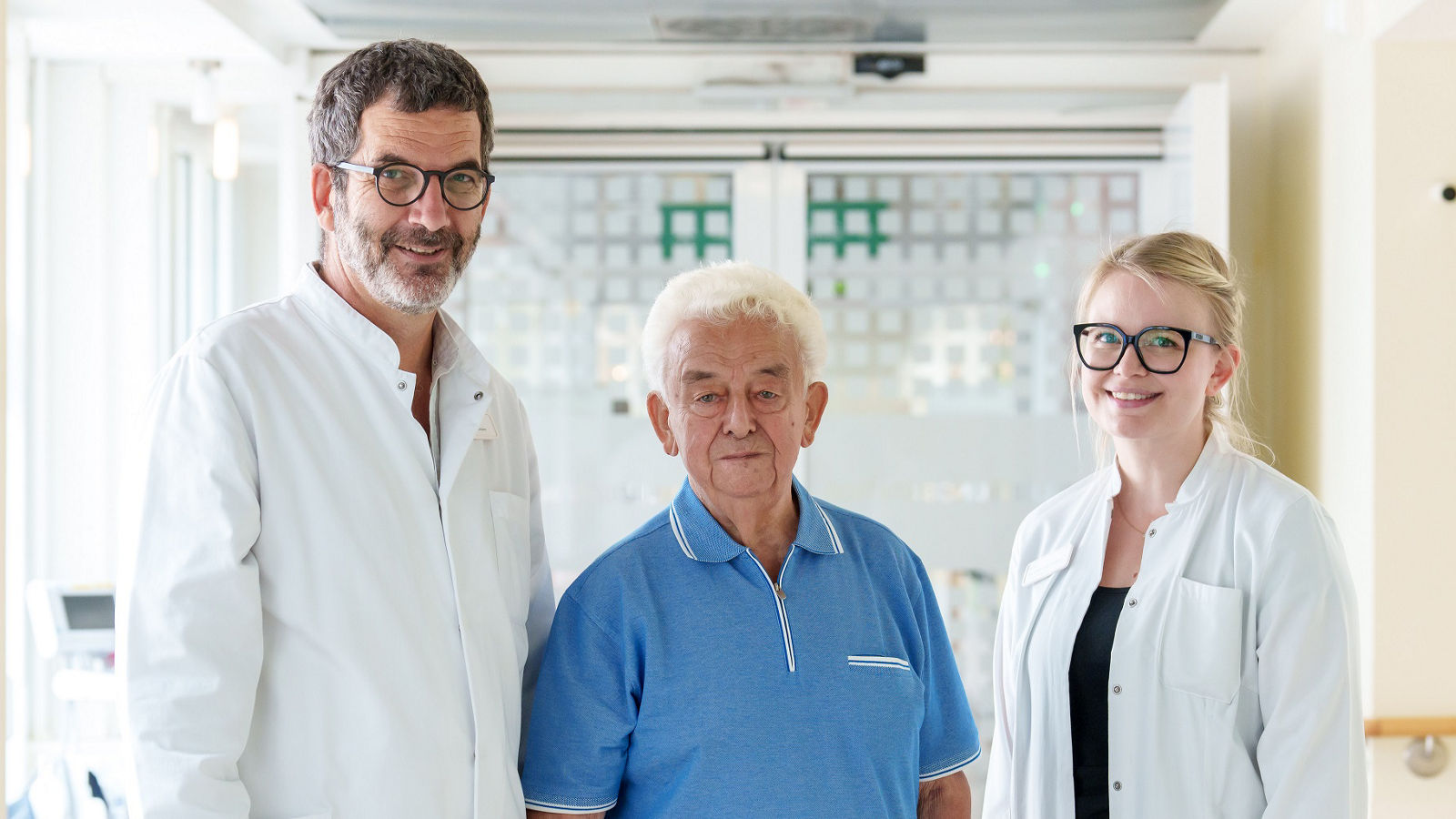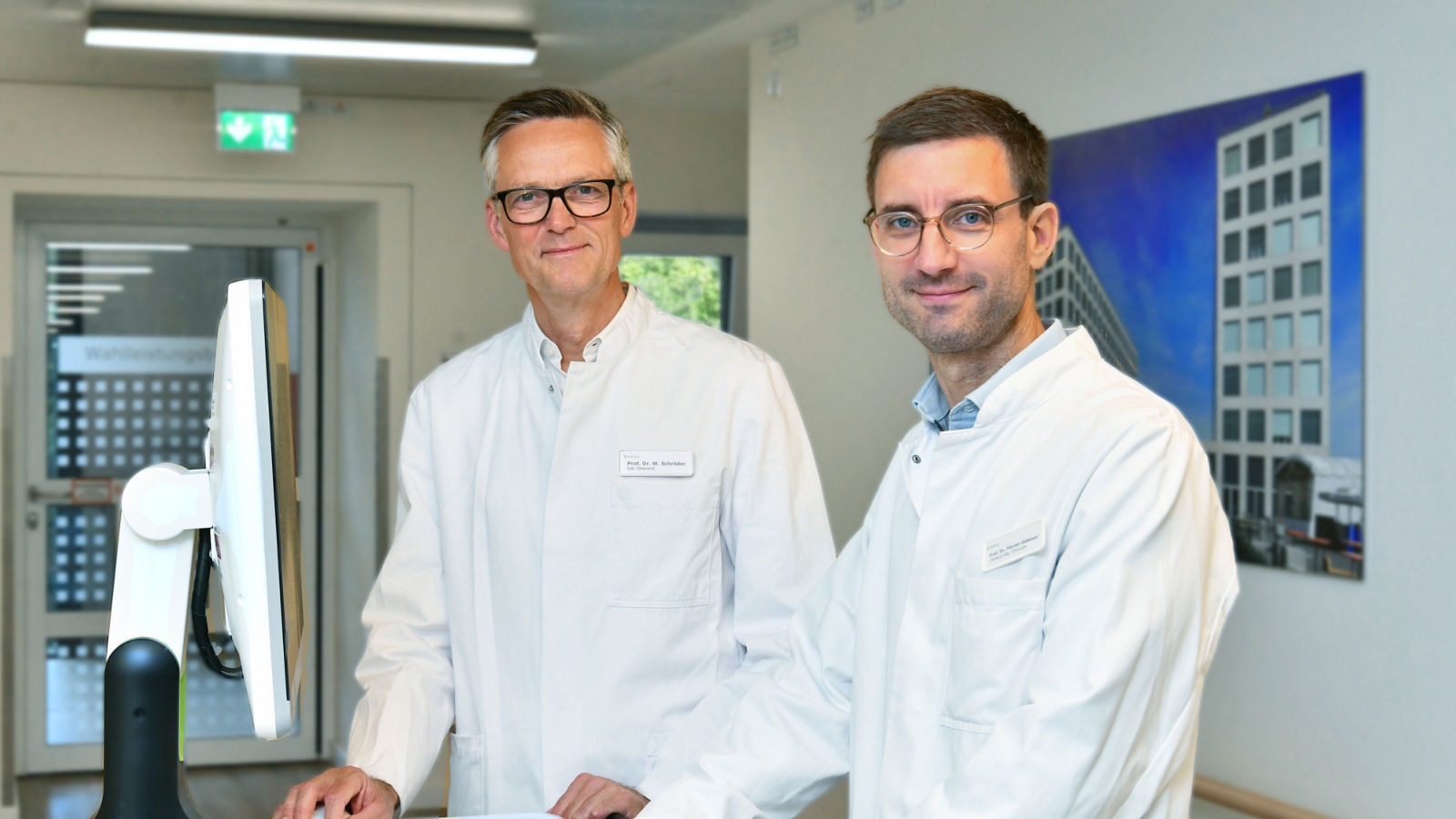
Helios Berlin-Buch: Successful treatment of esophageal cancer
Sometimes it's the little things that have a big impact. An acidic stomach, difficulty swallowing, head pressure. “Those were the first symptoms I noticed in myself,” Holger Lehmann recalls of December 2023, "but it was just before Christmas and I always get sick during this period because the stress goes away. So at first I didn't think anything of it." However, when he couldn't swallow another bite at Christmas dinner with his family, it confirmed what his wife had suspected for some time. "My wife knows me, she watches me and notices the slightest changes in me. She has suspected for some time that something is different," says the co-owner of the Patke winery in Pillgram, Brandenburg.
On the advice of his family doctor, he then had a gastroscopy performed at Helios Hospital Berlin-Buch in February 2024 - and was diagnosed with esophageal cancer. Suddenly everything happened quickly. Holger Lehmann explains: "I decided to stay in Buch and was then turned inside out, so to speak. It's crazy how many examinations you can carry out on a person. The team of doctors then worked out my plan in the tumor conference." In the months that followed, the 59-year-old underwent a major operation at the Helios Hospital in Berlin, preceded and followed by four blocks of chemotherapy. “I wasn't really aware of the extent of the whole treatment,” he adds, “so I was glad that I got to know my doctor before the first chemo and that he explained to me what to expect.”
A special situation
The doctor in question was Prof. Dr. med. Roger Wahba. The Head Physician for General, Visceral and Oncological Surgery at Helios Hospital Berlin-Buch had moved from Cologne to Berlin in 2023 and since then has been driving forward the establishment of oesophageal surgery as a new service in his department at the clinic in Buch. “Mr. Lehmann was the first patient here that I operated on for oesophageal cancer after I moved from Cologne to Berlin-Buch,” explains the specialist in visceral surgery, “so that was a special situation for me too.” But first Holger Lehmann had to undergo the first four chemotherapy sessions. “I tolerated them surprisingly well,” he recalls, "You develop your own rhythm at some point. Life goes on." This was also the case at the Patke winery, where the trained agricultural machinery mechanic continued to hold wine tastings between chemotherapy sessions. “I didn't drink alcohol, of course,” he reports, “but everything still worked out well.”
Successful operation
In May 2024, the time had finally come: Holger Lehmann underwent surgery. "The operation went very well. We first removed the oesophagus, the upper part of the stomach and the lymph nodes in this area and then formed a tube from the remaining stomach, pulled it upwards and connected it to the remaining part of the oesophagus," explains Prof. Dr. Wahba. The surgical procedure is technically known as an Ivor-Lewis esophagectomy. The tumor is completely removed and the stomach tube becomes the new oesophagus, but this also changes the functionality of the stomach.
Prof. Dr. Wahba explains:
"Due to the type of operation, the stomach as a reservoir can initially only collect small amounts of food and liquid. But acid production in the stomach is also reduced. Some patients still lose a lot of weight."
This is also the case for Holger Lehmann, who weighed almost 120 kilograms in December 2023 and lost 32 kilograms over the course of the treatment. He confirms: "Today, I weigh 88 kilograms - and that's with an announcement. Prof. Dr. Wahba had already told me during our first consultation that I urgently needed these kilos for the time being, but that I would definitely lose them." The expert turned out to be right.
Impatience (sometimes) helps
Between the chemotherapy blocks, the successful operation, but also the complications during wound healing, Holger Lehmann's impatience made itself felt. He says: "I'm a very impatient person by nature. That was sometimes our biggest problem. Fortunately, the professor was always able to calm me down, even when I was at odds with the team." A characteristic that his attending physician does not resent, but rather credits him with. "First of all, impatience is a good thing. It means progress is being made. At least up to the point where a little patience is helpful,“ confirms Prof. Dr. med. Wahba with a smile and adds: ”In Mr. Lehmann's case, however, it has also been shown once again that patients who get stuck in, who work within their limits and actively participate in therapy can have a very positive influence on their recovery."
Holger Lehmann's recovery can therefore be described as a joint success. A success for himself, for Prof. Dr. med. Wahba and, above all, for Holger Lehmann's wife. "My wife was and is my greatest support. She always kept an eye on everything, looked after and checked my wounds and, most importantly, thankfully also said: ‘That's it, you're going to the doctor’," he says. In addition to his wife, he also received a lot of support and encouragement from the rest of his family, friends, acquaintances and work colleagues. Today, he is happy to be back at the winery. "Here on the farm, together with the whole team and a good white wine - these are the moments that nobody can take away from you. That's what life is all about," he enthuses. And Prof. Dr. med. Wahba was right in this respect too. He promised his patient when they first met: “Mr. Lehmann, at Christmas you'll be sitting in his yard again and drinking a good glass of red wine.” No sooner said than done.
Read more:
Do you need more information about Helios Hospitals or want to schedule your treatment?

